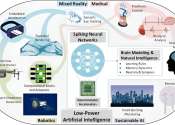Researchers move closer to green hydrogen via water electrolysis
Water electrolysis offers an ideal process for hydrogen production, which could play a key role in the global energy transition that increasingly relies on renewable electricity, but whose current production process is extremely ...
Jul 12, 2024
0
106









